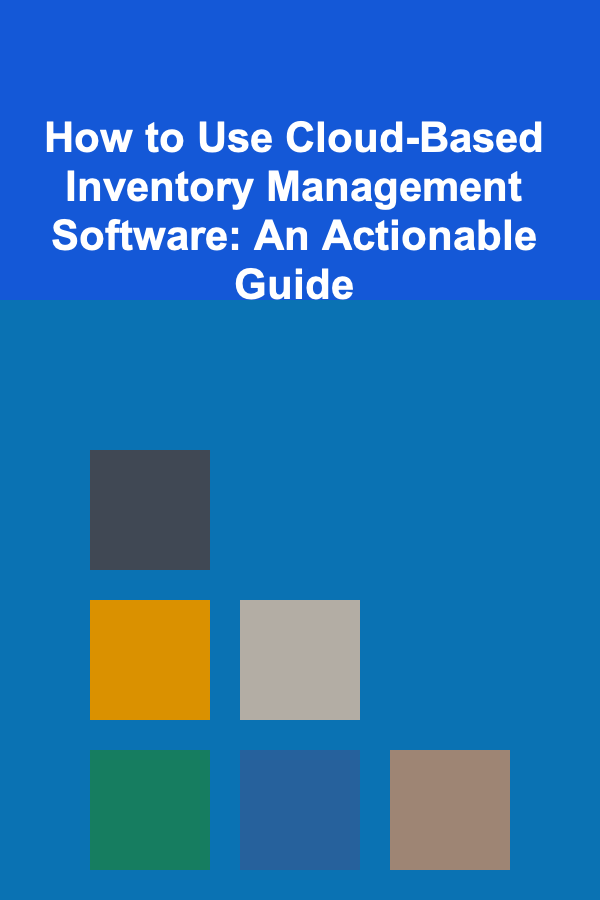
How to Buy Your First Home
ebook include PDF & Audio bundle (Micro Guide)
$12.99$5.99
Limited Time Offer! Order within the next:

Purchasing your first home is an exciting milestone, but it can also be a daunting and overwhelming experience. Whether you're moving out of a rental, leaving your parents' home, or simply ready to take the leap into homeownership, understanding the home-buying process is essential to ensure a successful and stress-free purchase.
In this comprehensive guide, we will walk through every step of the home-buying journey, from determining if you're ready to buy a home to securing financing and closing the deal. Whether you are familiar with the real estate market or are entirely new to the concept, this article will provide valuable insights and practical advice to help you navigate the complexities of buying your first home.
Assessing Your Readiness to Buy a Home
Before diving into the housing market, it's crucial to assess whether you're truly ready to purchase a home. Homeownership comes with responsibilities that extend beyond simply paying the mortgage; it requires financial stability, a clear understanding of your long-term goals, and the ability to maintain the property.
Financial Stability
One of the most important factors in deciding whether to buy a home is your financial situation. Homeownership involves ongoing costs beyond the initial purchase, including mortgage payments, property taxes, homeowners insurance, maintenance, and utility bills.
Key aspects to assess:
- Stable Income: Ensure you have a consistent source of income to cover monthly expenses and the home's financial obligations.
- Emergency Fund: It's crucial to have an emergency savings fund that can cover at least three to six months' worth of expenses, including mortgage payments.
- Debt-to-Income Ratio: Lenders will evaluate your debt-to-income ratio, which is the percentage of your income that goes toward paying off debts. A lower ratio increases your chances of securing a loan.
Understanding Your Long-Term Goals
Buying a home is a long-term commitment, and it's important to consider your future plans. Will you stay in the area for at least five to seven years? Do you plan to start a family? Will your career require relocation in the near future?
Answering these questions will help you determine whether buying a home now aligns with your personal and professional goals. If you're uncertain about your long-term stability, renting may be a better option for the time being.
Understanding the Market and Your Budget
Once you've decided that you're ready for homeownership, the next step is to understand the real estate market and figure out how much you can afford.
Researching the Local Housing Market
The real estate market varies significantly depending on location, time of year, and broader economic conditions. To make an informed decision, you need to understand the local market dynamics, including:
- Market Trends: Is the market currently favoring buyers or sellers? Are home prices rising or falling?
- Neighborhoods: Identify neighborhoods that align with your lifestyle and long-term goals. Factors such as proximity to work, schools, public transportation, and safety should influence your decision.
- Comparable Sales: Research the sale prices of similar properties (comparables) in your desired neighborhood to determine if the homes you're considering are reasonably priced.
Calculating Your Budget
Understanding your budget is crucial in the home-buying process. Knowing how much you can afford to spend on a home will guide you toward making a sound investment without overextending your finances.
Key Budgeting Considerations:
- Down Payment: The down payment is one of the most significant upfront costs in purchasing a home. Typically, lenders require a down payment of at least 3% to 20% of the home's purchase price. A larger down payment will reduce your mortgage amount and can help you avoid private mortgage insurance (PMI).
- Loan Pre-Approval: Before you start shopping for homes, it's wise to get pre-approved for a mortgage. This process involves a lender assessing your financial situation, including income, debt, credit score, and assets. A pre-approval letter not only helps you understand how much you can borrow but also shows sellers that you're a serious buyer.
- Other Costs: Don't forget to factor in closing costs, home inspections, moving expenses, and ongoing maintenance costs. You should also budget for utilities, property taxes, and homeowner's insurance.
Finding the Right Home
Once you've determined your budget and researched the market, the next step is finding the right home that meets your needs and preferences.
Deciding on Your Home's Features
Start by listing your must-have features and priorities, including:
- Size and Layout: How many bedrooms and bathrooms do you need? Do you want a large kitchen, a spacious backyard, or a home office?
- Type of Property: Do you prefer a single-family home, a townhouse, or a condominium? Consider the maintenance requirements, community amenities, and overall lifestyle you want.
- Future Growth: Look for homes that can accommodate future life changes, such as family growth, career changes, or aging in place.
Working with a Real Estate Agent
Hiring a real estate agent can be beneficial, especially if you're unfamiliar with the home-buying process. An agent will help you:
- Identify Properties: They have access to listings that may not be available online and can recommend homes based on your preferences.
- Negotiate Offers: A skilled agent will guide you through the negotiation process to ensure you're getting the best deal possible.
- Handle the Paperwork: The home-buying process involves a lot of paperwork, and a real estate agent can help ensure everything is completed correctly and on time.
Attending Open Houses and Tours
Once you've identified potential homes, attend open houses or schedule private showings. Take detailed notes during your tours and consider the following factors:
- Condition of the Home: Check for any obvious signs of damage, such as leaks, mold, or structural issues.
- Noise and Neighborhood: Consider the noise levels in the area and whether the neighborhood suits your lifestyle.
- Potential for Improvement: Determine if the home has the potential for upgrades or renovations to make it more suitable for your needs.
Securing Financing
Securing financing for your home purchase is a critical part of the process. Mortgages come in various forms, and choosing the right one can significantly impact your financial future.
Types of Mortgages
Several types of mortgages are available, each with its own terms and requirements:
- Fixed-Rate Mortgage: The interest rate remains the same for the duration of the loan, providing predictable monthly payments.
- Adjustable-Rate Mortgage (ARM): The interest rate is fixed for an initial period, after which it adjusts based on market conditions. While this can offer lower initial rates, it can also result in higher payments later.
- FHA Loan: A loan backed by the Federal Housing Administration, ideal for first-time homebuyers with lower credit scores or smaller down payments.
- VA Loan: A loan backed by the Department of Veterans Affairs, available to eligible veterans and active-duty military personnel, often with no down payment required.
- Conventional Loan: A loan that isn't insured or guaranteed by the government, typically requiring a higher credit score and a larger down payment.
Shopping for the Best Mortgage
Compare rates, terms, and fees from different lenders to find the best mortgage for your needs. Don't be afraid to ask lenders about all fees, including loan origination fees, closing costs, and any other charges.
Understanding Interest Rates and Terms
When comparing mortgage options, be sure to understand how the interest rate and loan terms will affect your monthly payment and overall costs. A lower interest rate will generally save you money over the life of the loan, but it may come with stricter eligibility requirements or higher fees.
Making an Offer and Negotiating
Once you've found the home you want, it's time to make an offer. Your real estate agent will help you draft an offer letter, which includes your proposed price, contingencies (such as home inspections or financing), and a closing timeline.
Contingencies
Contingencies are conditions that must be met for the sale to proceed. Common contingencies include:
- Home Inspection: You can negotiate a contingency that allows you to back out of the deal if the home inspection reveals significant issues.
- Appraisal: Your lender will require an appraisal to confirm that the home is worth the amount you're paying.
- Financing: If you're unable to secure financing, you may have the option to cancel the deal without penalty.
Negotiating the Deal
Negotiation is often a back-and-forth process. If the seller rejects your first offer, your agent can help you revise it. Common negotiation tactics include asking the seller to lower the price, cover some of your closing costs, or make necessary repairs before closing.
Closing the Deal
Once your offer is accepted, it's time to finalize the deal.
The Closing Process
During closing, you will review and sign all documents related to the mortgage, including the deed, loan agreement, and other legal documents. The closing agent will also ensure that all conditions of the sale are met, such as the completion of the home inspection and appraisal.
Final Walkthrough
Before closing, you'll have the opportunity to do a final walkthrough of the property to ensure everything is in order. This is your chance to confirm that the seller has made any agreed-upon repairs and that the home is in the condition specified in the contract.
Closing Costs
In addition to the down payment, you'll need to pay closing costs, which typically range from 2% to 5% of the home's purchase price. Closing costs may include loan fees, title insurance, taxes, and other administrative expenses.
Conclusion
Buying your first home is a significant achievement, but it requires careful planning, research, and consideration. By following the steps outlined in this guide, you can approach the home-buying process with confidence and make informed decisions that align with your financial goals and lifestyle.
Remember that homeownership comes with both rewards and responsibilities. With the right knowledge and preparation, you'll be well on your way to finding a home that suits your needs and provides a sense of stability and security for years to come.

How to Coordinate with Movers or Friends for Moving Day
Read More
How to Use Cloud-Based Inventory Management Software: An Actionable Guide
Read More
Start Here: How to Start a Blog
Read More
How To Research the Future of Human Genetics
Read More
How to Make Healthy Freezer Meals
Read More
10 Tips for Optimizing Your Therapy Session Planner for Efficiency
Read MoreOther Products

How to Coordinate with Movers or Friends for Moving Day
Read More
How to Use Cloud-Based Inventory Management Software: An Actionable Guide
Read More
Start Here: How to Start a Blog
Read More
How To Research the Future of Human Genetics
Read More
How to Make Healthy Freezer Meals
Read More